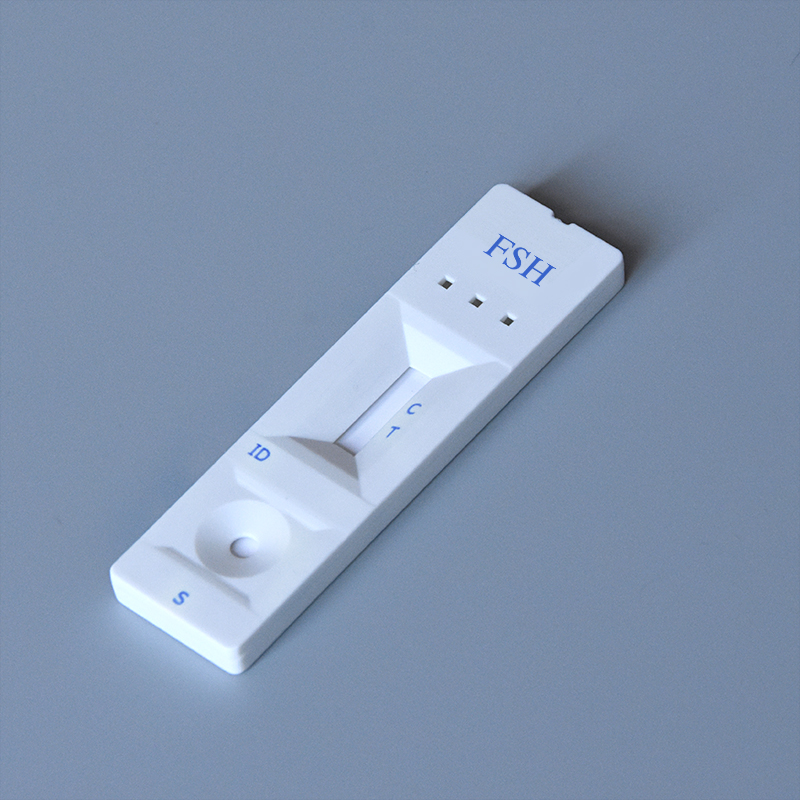Nov . 08, 2024 12:31 Back to list
Wholesale Supplier of Stool Antigen Tests for H Pylori Detection and Diagnosis
Wholesale Stool Antigen Test for H. Pylori A Comprehensive Overview
The prevalence of Helicobacter pylori (H. pylori) infection is a significant global health concern, with an estimated 50% of the world's population infected at some point in their lives. This bacterium, primarily residing in the stomach, is a major contributor to various gastrointestinal disorders, including peptic ulcers and gastric cancer. To detect H. pylori, various diagnostic tests are available, with stool antigen tests emerging as one of the most effective and non-invasive methods. This article explores the wholesale market for stool antigen tests specifically targeting H. pylori, shedding light on suppliers, products, and their importance in the healthcare landscape.
Understanding H. Pylori and Its Implications
H. pylori infection often goes unnoticed as many individuals remain asymptomatic. However, symptoms can include abdominal pain, bloating, nausea, and in severe cases, the development of ulcers. The World Health Organization classifies H. pylori as a definitive carcinogen, necessitating early detection and treatment. Traditional diagnostic methods such as endoscopy and urea breath tests are effective but may not always be convenient or feasible for patients. This is where the stool antigen test comes into play, offering a reliable, less invasive alternative.
The Stool Antigen Test Mechanism and Benefits
The stool antigen test works by detecting the presence of H. pylori antigens in the feces. Upon receiving a sample, the test utilizes specific antibodies that bind to the H. pylori antigens, leading to a color change or signal that indicates the presence of the bacterium.
The advantages of stool antigen tests include
1. Non-Invasiveness Patients appreciate the ease of providing a stool sample compared to invasive procedures like endoscopy. 2. High Sensitivity and Specificity Modern stool antigen tests boast high accuracy, reducing the likelihood of false positives or negatives. 3. Cost-Effectiveness For healthcare providers, these tests are generally more affordable, making them accessible for routine screening. 4. Rapid Results Many of these tests can deliver results within a few hours to a day, allowing for timely medical intervention.
The Wholesale Market for Stool Antigen Tests
wholesale stool antigen test for h pylori supplier

The demand for H. pylori stool antigen tests has surged due to the growing awareness of gastrointestinal health issues and the push for non-invasive diagnostic options. As a result, the wholesale market is becoming increasingly competitive, with numerous suppliers offering a range of products.
Key factors driving the wholesale market include
- Technological Advancements Innovations in test development have led to improved sensitivity and quicker results, attracting healthcare providers. - increased Prevalence of Gastrointestinal Disorders The rise in digestive health issues has led to greater screening and diagnostic efforts. - Global Health Initiatives Organizations are emphasizing the importance of detecting H. pylori to reduce the incidence of stomach cancers, further driving demand.
Selecting a Reliable Supplier
For healthcare facilities, selecting a trustworthy wholesale supplier for stool antigen tests is crucial. Factors to consider when choosing a supplier include
- Quality Assurance Ensure that the supplier adheres to regulatory standards and provides tests that have been clinically validated. - Customer Support A supplier that offers excellent customer service can assist healthcare providers with any questions or issues that may arise. - Product Range Suppliers that offer a variety of tests can cater to different needs, including individual kits and bulk orders for larger practices. - Pricing and Availability Competitive pricing and reliable availability of products are key factors, especially for healthcare institutions operating on tight budgets.
Conclusion
The wholesale market for stool antigen tests for H. pylori is thriving as the demand for effective, non-invasive diagnostic solutions continues to grow. As healthcare providers prioritize the early detection and treatment of H. pylori infections, suppliers play an essential role in ensuring that high-quality tests are readily available. With the right supplier partnership, healthcare facilities can significantly enhance patient care and contribute to the global effort of combating H. pylori-related diseases.
-
Accurate HCG Pregnancy Test Strips | Fast Home Use Kit
NewsJul.31,2025
-
Reliable Early Pregnancy Test Kit Supplier - Multi Plastic Cassette Options
NewsJul.30,2025
-
Transferrin Rapid Test Cassette – Reliable Tumor Marker Detection
NewsJul.29,2025
-
Accurate Follicle Stimulating Hormone Test Kit | Rapid Reliable Results
NewsJul.29,2025
-
High Accuracy LH Ovulation Test Kit - Digital Results & Wholesale Options
NewsJul.29,2025
-
HbsAg Blood Rapid Test Kit for Fast & Accurate Hepatitis B Detection
NewsJul.28,2025

